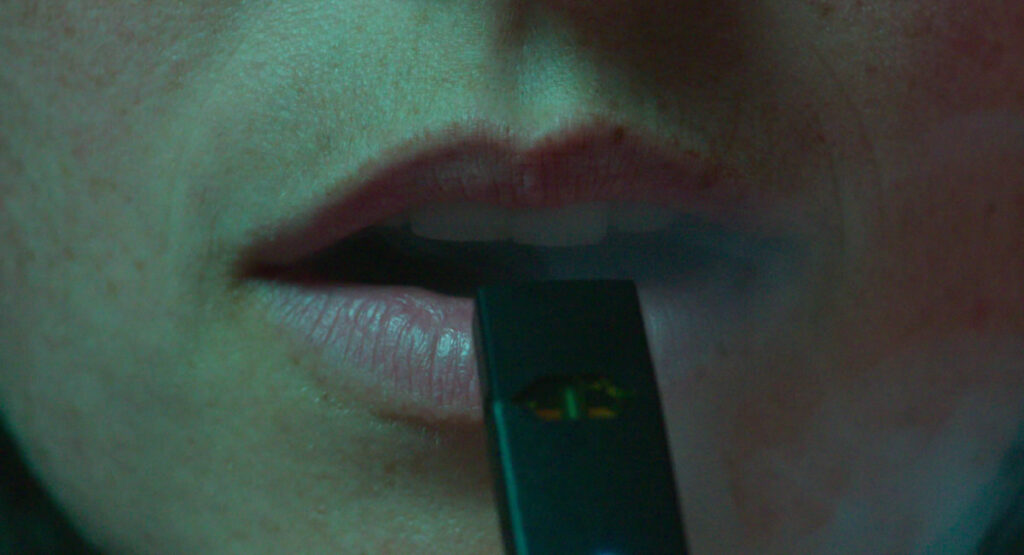It seems like just yesterday Juul was on top of the world. The sleek, discreet vapes were everywhere you looked. From school restrooms to music festivals, it felt like all the cool kids were Juuling. But within a few short years, the company cratered – a cautionary tale of an unethical marketing strategy aimed at addicting youth to nicotine.
Juul’s story reminds us that while innovation and filling a consumer need can lead to overnight success, taking ethical shortcuts for quick profits often backfires spectacularly.
From Promising Startup to Viral Phenomenon
Juul’s origins trace back to Stanford University, where two product design grad students identified the potential for electronic cigarettes to disrupt the massive tobacco industry. Cigarettes contributed to 480,000 deaths per year in the US alone, so an alternative nicotine delivery method seemed like a noble pursuit.
After launching the initial Juul product in 2015, the company quickly iterated based on user feedback. They increased the nicotine strength and added trendy flavors like mango and cool cucumber to appeal to their target market – adult smokers looking to switch to a reduced harm vaping option.
Early adoption was steady but modest. Juul lacked the marketing dollars to compete with Big Tobacco’s entrenched brands. Their workaround? Viral marketing campaigns leveraging social media influencers to organically spread buzz and intrigue.
Juul’s Vaporized ads adopted an edgy, stylish aesthetic evocative of vintage cigarette commercials. Bright colors, attractive models, and indie soundtrack conveyed vaping as the cool new trend for hip urban millennials.
Soon Juul expanded their influencer program, sending free samples to trendsetting celebrities, Instagram personalities, and underage social media stars. #Juul became a sensation seemingly overnight. Trendy pop-up events let people sample flavors and learn “Juul tricks.” Suddenly Juul was everywhere online – and in real life.
Critics Take Issue With Irresponsible Marketing Tactics
While Juul maintained their target was adult smokers, it became abundantly clear their messaging resonated loudly with youth who had never picked up a cigarette.
Some influencers were in fact minors themselves. Hashtags like #juulnation propagated rapidly among underage social media users who wanted to emulate the cool, rebellious vibe of Juul ads. Schools quickly became hotspots for students Juuling in bathrooms, hallways, and even classrooms.
But Juul’s social media buzz was just the tip of the iceberg according to later investigations. Research found Juul knowingly funded youth programs to gain access to young audiences. They paid schools for email lists and summer camp/youth program sponsorships. Free samples, launch parties, and youth-focused flavor options rounded out their strategy.
Critics compared their tactics to the infamous methods Big Tobacco used to hook youth on cigarettes generations prior. Except now, Juul had the internet and social media allowing their reach to spread wider and faster than ever before.
The Fallout Hits as Skeletons Emerge from Juul’s Closet
In response to the swelling backlash, Juul halted all US advertising in November 2018. But by then, millions of teens were already addicted to Juul’s massive doses of nicotine.
Waves of vaping-related hospitalizations among youth made national headlines. Furious parents blamed the company for deliberately addicting their children. It emerged that Juul’s much-hated founder, James Monsees, had allegedly said “youth prevention doesn’t sell.”
Juul became irrevocably associated with the youth vaping crisis rather than a solution for adult smokers. The FDA scrambled to ban their products, while Juul spent billions fighting regulation and settling lawsuits.
Today the company still hopes to eventually sell to adult smokers and has released new tech to restrict underage sales. But their tarnished reputation thanks to unscrupulous early marketing tactics may prevent them from ever rebuilding consumer trust.
Key Lessons About Marketing Products Responsibly
While Juul sincerely hoped to innovate to help cigarette smokers like any disruptive startup, their reliance on youth-focused viral marketing blew up in spectacular fashion once the skeletons were exposed.
Their saga underscores why marketing potentially addictive substances like nicotine requires extreme care and ethics. Rather than let greed dictate decisions, companies must prioritize protecting youth, a vulnerable population. Digital marketing reaches wider audiences faster than ever before, so proactively self-regulating and preventing teen access is crucial.
For other vape and e-cig companies, Juul’s mistakes serve as an instructive tale. Responsible marketing has become more important than ever in the digital age. Companies hoping to sustain long-term growth need to align business practices with their stated values. Otherwise they risk a similarly harsh backlash.
What’s Next for Vaping Regulation in a Post-Juul World?
While Juul itself may never recover from actively fueling the youth vaping epidemic, e-cigarettes remain popular among adult smokers looking to transition away from riskier combustible cigarettes. The entire vaping industry has reckon with increased scrutiny in Juul’s aftermath however.
Tighter e-cigarette marketing laws have been proposed to prevent another youth public health crisis. But appropriately regulating vaping to restrict youth access while still allowing adult smokers access remains a challenge.
The FDA continues ratcheting up enforcement actions against specific products deemed too appealing or accessible to teens. They also pressure vape manufacturers to strengthen age verification and self-regulate flavor names.
For vaping companies hoping to learn from Juul’s mistakes, responsible marketing and eliminating teen appeal of products will likely be the key to surviving increased oversight. The next chapter for the vaping industry hangs in the balance.
- Myanmar Enacts Total Ban on E-Cigarettes and E-Shisha - February 25, 2026
- UK Announces Mandatory Vape Tax and Duty Stamps from 2027 - February 10, 2026
- Sri Lanka Travel 2026: Total Ban on Cigarettes & Vapes - February 5, 2026


